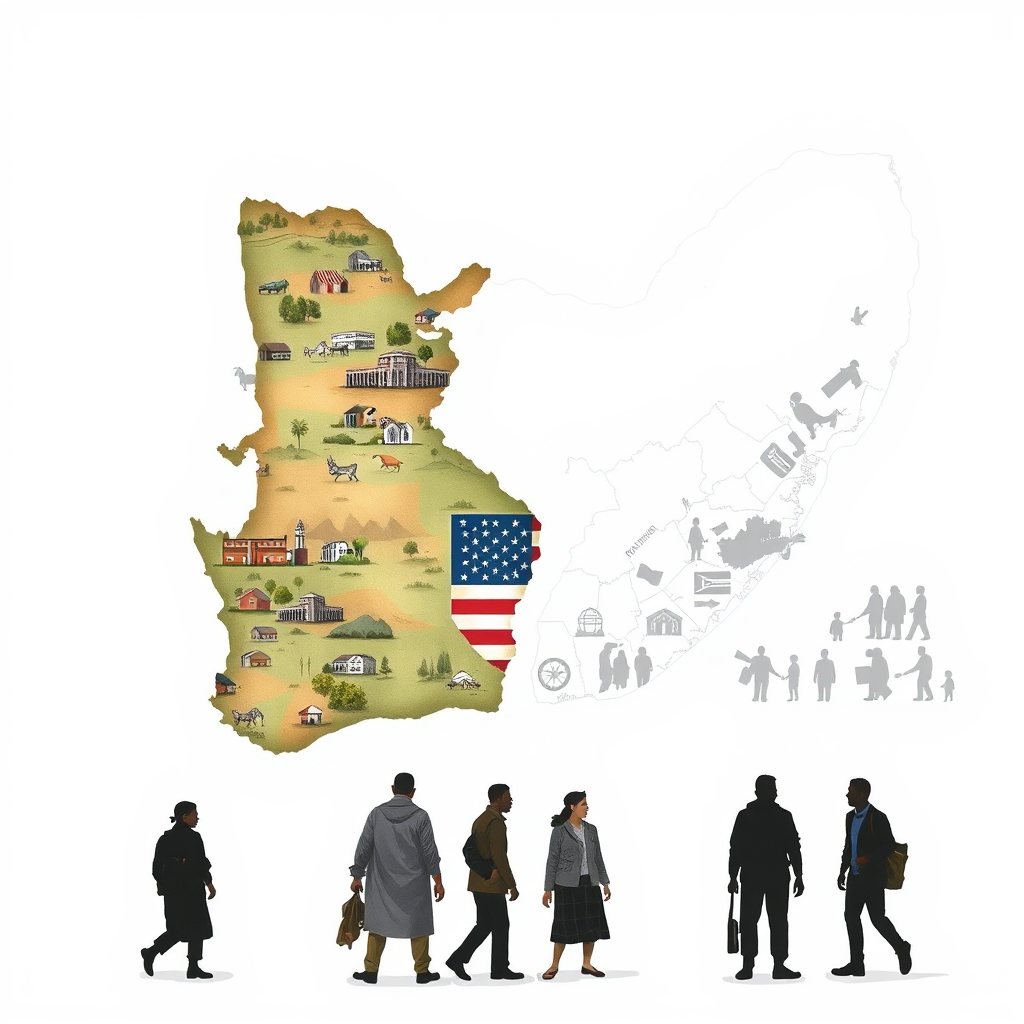Trump’s White South Africa Refugee Policy Explained

The Trump administration has fast-tracked refugee status for a select group – white South Africans, specifically Afrikaners – a move sharply contrasting with the simultaneous curtailment of refugee admissions from regions facing genuine humanitarian crises. This policy, enacted under the second Trump term, prioritizes a population that, despite claims of persecution, demonstrably maintains significant privilege within South Africa.
The decision has sparked outrage and accusations of thinly veiled racism, particularly given the administration’s rhetoric framing Afrikaners as victims of a “genocide” and anti-white discrimination – claims unsupported by evidence. While the administration cites concerns over land reform and violence against farmers, experts and data paint a different picture.
Jacob S. Dlamini, a Princeton University history professor who grew up under apartheid, argues the claim of persecution is baseless. He points out that Afrikaners, as a group, continue to benefit from systemic advantages established during the apartheid era, owning a disproportionate share of land and holding leadership positions in corporate South Africa. Recent land reform efforts, intended to address historical injustices, have barely impacted white land ownership, with no reported instances of farmers having land seized.
Dlamini highlights the irony of prioritizing this privileged group while simultaneously shutting out refugees from war-torn countries like the Democratic Republic of Congo, Sudan, and Afghanistan. The administration’s actions are not simply a matter of selective compassion, but a clear signal of prioritizing white interests over the needs of those genuinely fleeing persecution and violence.
The policy appears rooted in a network of South Africans connected to the Trump administration, extending beyond Elon Musk. Dlamini suggests a cohort of white men who have struggled to accept the democratic transition in South Africa, and the loss of their historical power, are driving this agenda. This isn’t about genuine humanitarian concern, but a desire to restore a system of privilege.
The implications for South Africa are significant. The administration’s actions risk destabilizing the country and undermining its efforts to address the legacy of apartheid. However, Dlamini believes this could also serve as a wake-up call for the African National Congress (ANC) government to prioritize the needs of its impoverished citizens and address systemic corruption.
The ANC’s initial approach of attempting to create a Black capitalist class through government contracts has largely failed, mirroring the patronage systems of the apartheid era. A more equitable and sustainable approach is needed to address the deep-seated inequalities that continue to plague South Africa.
Ultimately, the Trump administration’s policy is a deeply troubling example of selective compassion and thinly veiled racism. It prioritizes the interests of a privileged minority over the needs of those genuinely fleeing persecution, and it risks undermining efforts to address the legacy of apartheid in South Africa. The decision isn’t about providing refuge; it’s about reinforcing a system of privilege and signaling a disturbing disregard for human rights and international norms. It’s a moral failing that demands scrutiny and condemnation.